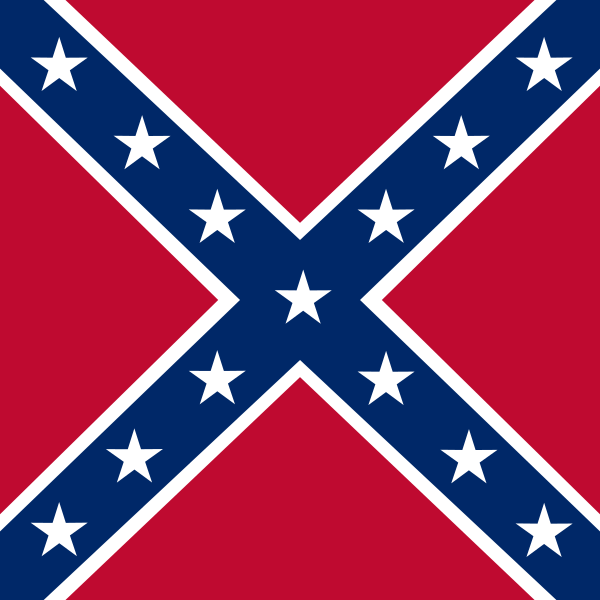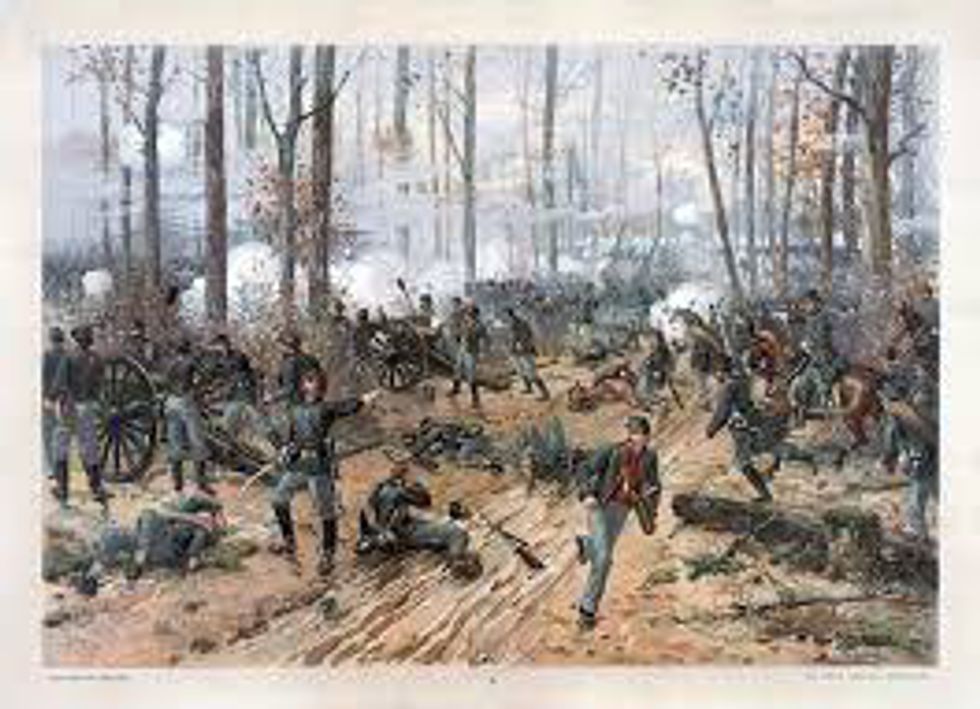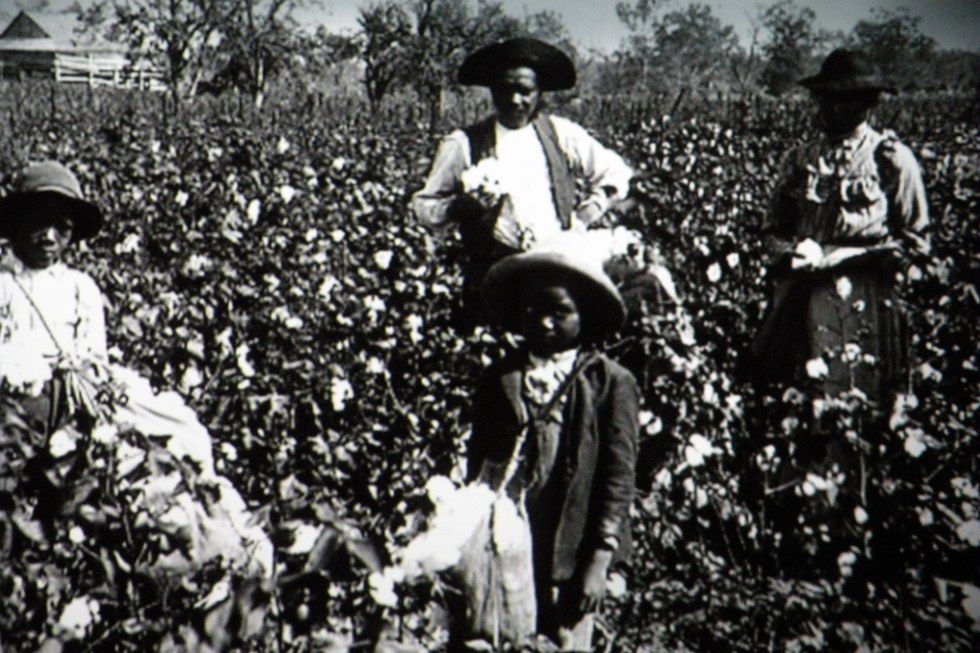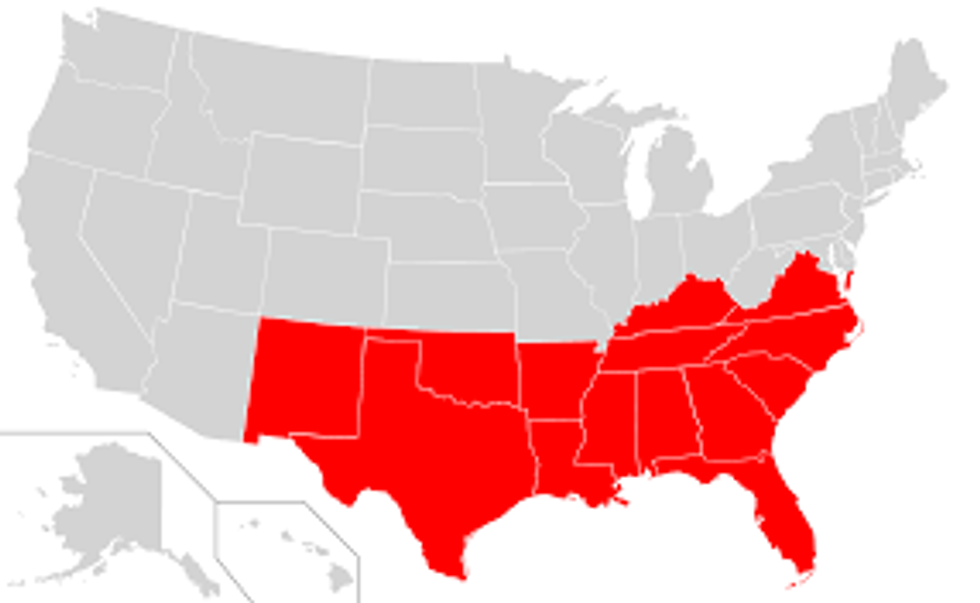When I was a young kid growing up in Memphis, Tennessee, my dad drove me out to Shiloh one early Saturday morning. I thought it was odd at first — it seemed like there was nothing to do or see. As far as city life went, the local café where we ate breakfast that morning was the epicenter of both news and gossip. I soon found out that our random road trip wasn't so random after all. On that foggy morning, I watched my first and only Civil War reenactment.
Words can't sum up my excitement. Remember, I was around 10 at the time, and at a such a young age I was still captivated by the wonders of being a soldier. A lesser known Civil War fight, the Battle of Shiloh, was to be my entertainment for the day, and it felt like Christmas was coming early. I was amazed by all the actors, who were dressed from head to toe in vintage uniforms, seeming as if they stole them off the bodies of someone who actually lived during the times of the Civil War. I remember walking through the campsite of the “Confederacy” side and hearing a women shout to her husband, “Go kill us some Yankees today,” as he walked off to prepare for what was to be a monumental battle.
The battle was amazing from the start. Canons were firing all around us, and I couldn’t believe my eyes! As I glanced across the field, I saw the fallen soldiers from both the Confederate and the Union soldiers. At first I was petrified by the sight of a field of dead people. It took reassurance from my father that they were not actually dead, but instead were method acting. With this new knowledge, I continued to watch as the Union slowly started to push through the Confederate soldier’s lines, finally winning the battle. Instead of hearing cheers from the crowd, my ears were met with the groaning and booing. For the audience that was there that day, the Confederate soldiers were the good guys.
What happened to the South?
Southern secession was premised on racial superiority, but also on obscene economic entitlement. Slavery was an estimated $2 trillion industry in 1860 (adjusted for inflation). African Americans remained inferior, because they had to remain the pillar of Southern power and wealth, and the Antebellum 1 percent had no qualms about throwing hundreds of thousands of poor, conscripted, non-slave holding Southern yeoman at Yankee guns in defense of their ill-gotten gains.
History bears this out. After 1861, the vast majority of rebel soldiers were forced to fight on pain of death. Companies of “recruitment” officers dragooned through Southern towns and forced young men into the rebel army.
These men were made to fight not truly for southern independence or the states’ rights cliché; rather, these men died to defend the wealth of the planter class. The Confederate flag is more appropriate hanging in a contemporary Wall Street boardroom than above the Mississippi state capitol.
If you don’t believe me, let’s ask the framers of Mississippi’s own Declaration of Secession: “Our position is thoroughly identified with the institution of slavery — the greatest material interest of the world. Its labor supplies the product which constitutes by far the largest and most important portions of commerce of the earth.”
I don’t know if you’ve been to Jackson lately, but it’s not exactly rolling in cash.
The rebel flag is most directly a symbol of unspeakable racism, but it is also a symbol of greed. A callous, careless, greed that brought upon Dixie — the same land that banner claims to represent — the worst calamity in American history.
The Confederate flag and what it represents laid waste to the South. It burned Atlanta, it killed 10,000 southerners at Gettysburg and then it came home to strangle racial equality in the cradle.
The South is dysfunctional because southerners are irrational — and that is not an insult, it’s a point of pride. We’re a stubborn, emotional, beautiful people, the same sort of people that will rebuild a city over and over again, despite the fact it sits below sea level in the middle of Hurricane Alley.
So what is the state of the South today?
People are voting with their feet to live in Dixie. New data from the Census Bureau show that seven of the ten fastest-growing counties in America by population are in the South (defined here as the 11 states of the old Confederacy plus Kentucky and West Virginia). So are 70 of the top 100. The region is home to 34 percent of Americans, up from 27 percent in 1963.
The region is more diverse than it used to be. In the 2000s, eight of the top 10 states for Hispanic population growth were in the South. Some of the early Latino migrants came to build stadiums for Atlanta’s Olympics in 1996, but most of the recent growth has come from new births. Asian-Americans are now 7 percent of Virginia’s population, 4 percent of Georgia’s and 3 percent of North Carolina’s.
Later this year, Airbus will open a $600 million plant near Mobile, Alabama, not far from its rival Boeing in North Charleston, South Carolina. Volkswagen is expanding its car plants in Chattanooga. South Carolina makes more tires than any other state: both Michelin and Continental have their North American headquarters there. (The Palmetto State also grows more peaches than the Peach State, Georgia.)
Racism still casts a shadow. In 2014, 40 percent of America’s 784 hate groups were based in the South. Yet the gap between black and white household income is lower in the South than in America as a whole. And 14 percent of Southern newlyweds marry someone of another race — a larger share than in the Northeast or Midwest, according to the Pew Research Center, a think-tank. Black and white southerners vote differently (93 percent of blacks voted Democratic in 2012; 72 percent of whites, Republican). They also worship separately, for the most part. But the workplace is much more integrated.
Minus the South, the rest of the U.S. probably would be more like Canada or Australia or Britain or New Zealand — more secular, more socially liberal, more moderate in the tone of its politics and somewhat more generous in social policy. And it would not be as centralized as France or as socially democratic as Sweden.
But at what cost? Wouldn't we lose plenty of things by lopping off all those states?
To calculate just how much various statistics would change if the U.S. didn't include the South, I looked at data for the 34 states that aren't in the U.S. Census Bureau's South region from lists and studies, and weighted it according to population when necessary. (Census's definition includes Delaware, Maryland and Virginia in the South, though some others do not.)
What I found was without the South, the U.S. would have higher literacy, lower violence and lower obesity — in some cases very slightly — but we'd also be less racially diverse, lose more than half of our biggest businesses, forfeit miles of beaches and we wouldn't be as good at football (especially college). Although the South does drag the country down in some categories, it's a diverse region that adds a lot to the country and is constantly changing.
BBQ
With the South: Ten top 10 BBQ restaurants, according to an analysis of TripAdvisor reviews
Without the South: Three top 10 BBQ restaurants, according to an analysis of TripAdvisor reviews
Source: 2015 Tripadvisor data
Beaches
With the South: 5,743 miles of general coastline (not including Alaska)
Without the South: 2,773 miles of general coastline (less than half)
Source: U.S. Census Bureau
Business
With the South: 500 Fortune 500 companies
Without the South: 185 Fortune 500 companies (yes, 315 are on the South)
Source: 2015 Fortune 500 list
College football
With the South: Ten NCAA football champions in the past 10 years
Without the South: One NCAA football champion in the past 10 years
Source: NCAA
With the South: $42,784
Without the South: $44,253
Source: 2012 data from the Bureau of Business & Economic Research, UNM
Literacy
With the South: 66 percent of fourth graders reading below proficient levels
Without the South: 65 percent of fourth graders reading below proficient levels
Source: Annie E. Casey Foundation study of 2013 data
Military
With the South: 244 domestic Air Force, Army, Marines or Navy installations
Without the South: 134 domestic Air Force, Army, Marines or Navy installations
Source: Department Defense database of military installations
Obesity
With the South: 33 percent of population considered obese
Without the South: 26 percent of population considered obese
Source: 2015 Gallup poll
Racial diversity
With the South: 27.6 percent of Americans don't identify as "white alone"
Without the South: 26 percent of Americans don't identify as "white alone"
Source: 2010 Census
The South, while at times does hinder the rest of the United States, is absolutely vital, it balances out the rest of the United States. Like any part of the country, it has faced its hard times, but I believe that there is an upswing happening throughout the states below the Mason Dixon Line. Just in the last five years there has been a community urbanization movement that has taken my city in a good direction. Communities are working for a better way of life and in due time, these “movements” will slowly find their way into every nook and cranny of the South. Rome was not built in a day, and the South isn’t either.
























